#fudge
Chaos of the Multiverse
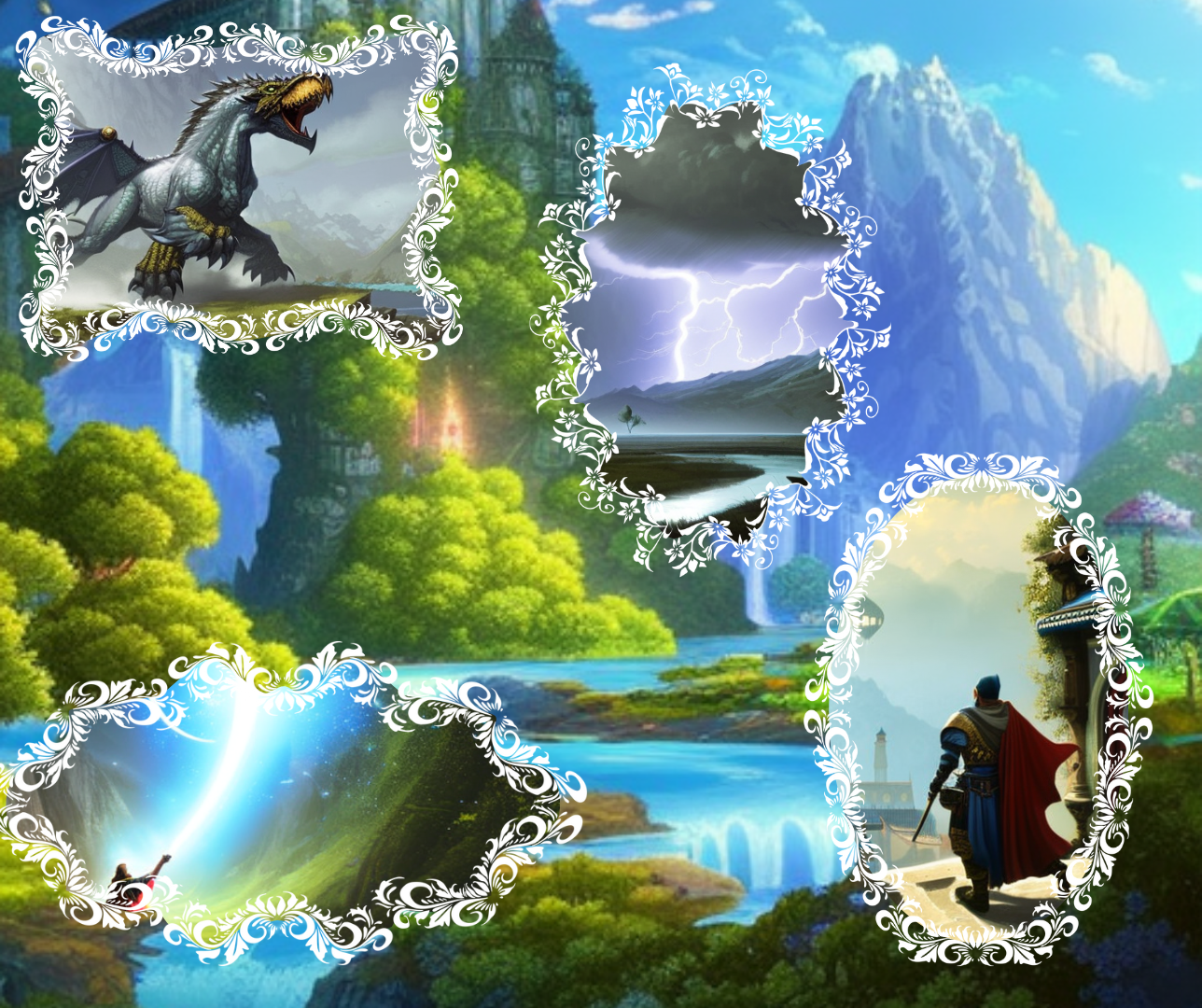
Introduction
I had a strange dream about traveling between worlds using magical portals, and decided to test ChatGPT. So this adventure is based on my dream and answers from Opes language model, ChatGPT.
All images are generated by different image generation AIs.
I use the Fudge Shape-shifting rules, and assume that the reader has read that article first.
In this high magic and intrigue adventure, 4-6 shape-shifting characters will embark on a journey through multiple worlds. Players will experience a world filled with magic and unknown dangers as they uncover the secrets behind their shape-shifting abilities. As the adventure progresses, players will be faced with challenges that test their skills and resolve, leading them to uncover hidden truths about the world and themselves. The adventure promises to be a thrilling ride through fantastical realms, as players use their shape-shifting abilities to overcome obstacles and uncover the mysteries of this unique world.
Comes with 6 pre-generated player characters suited for this adventure.
More Magic Rules
Introduction
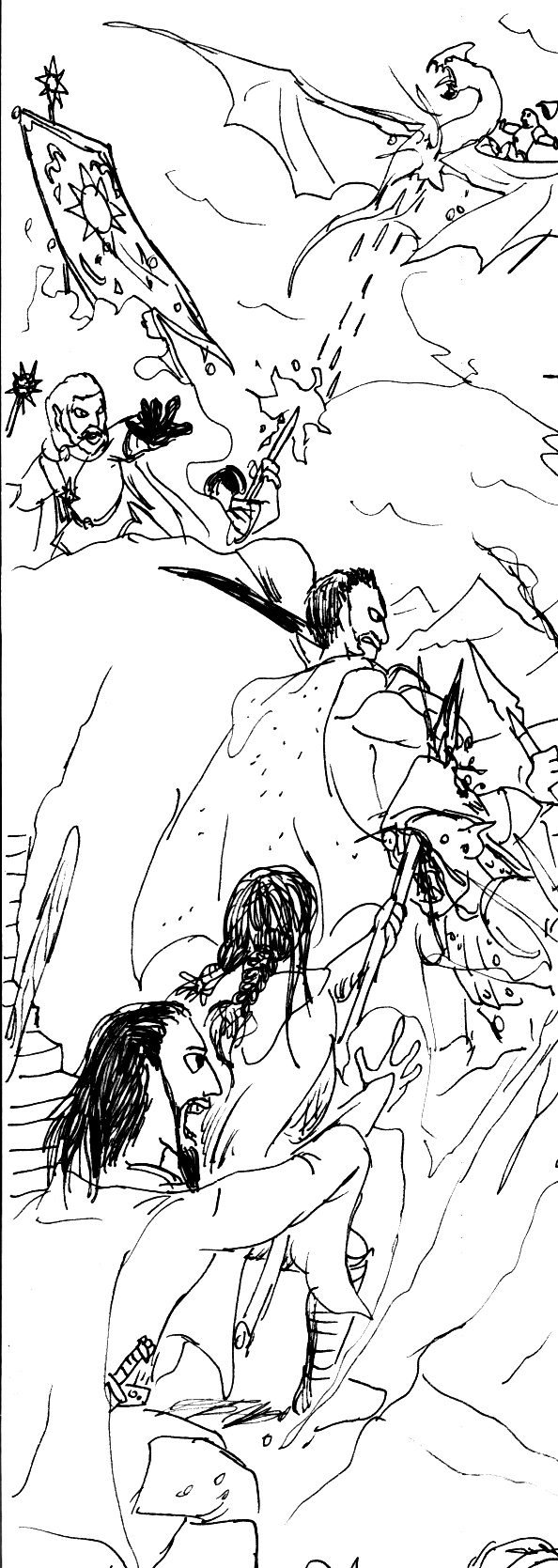
This article is part of the series where I share parts of my home-brew RPG - Rope, converted to Fudge (of course). I'm doing this to push myself to actually get the conversion done, so I can start running it again in earnest :).
This is a port from my RPG I created before finding Fudge, and has not been tested. If you do use it, I would love to get some feedback on this!
This article depends on several other articles I have written in the past. Please reference them for details on some of the terms in this article:
This article explores more rules around spell casting, allowing the creation of more thematic magic-users, and to be able to have more interesting spell-caster combat.
Fudge Familiars
Introduction
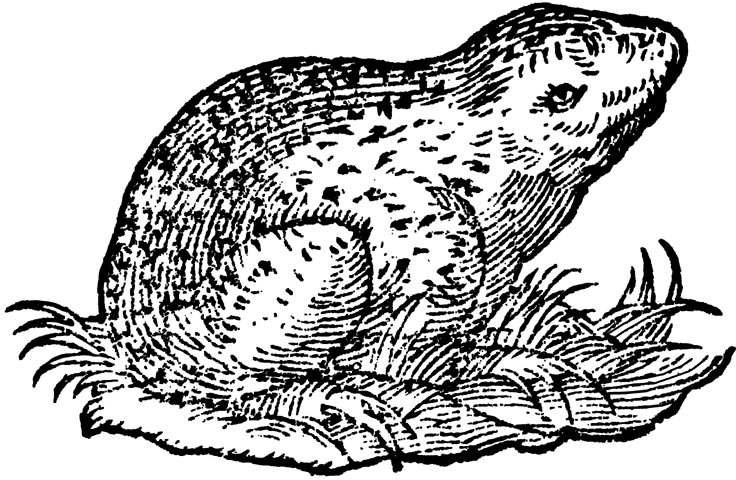
This article is part of the series where I share parts of my home-brew RPG - Rope - converted to Fudge (of course). I'm doing this to push myself to actually get the conversion done, so I can start running it again in earnest :).
This is a port from my RPG I created before finding Fudge, and has not been tested. If you do use it, I would love to get some feedback on this!
This system uses the Spell Crafting and Item Crating rules from my previous posts. I recommend reading them first to understand the actual Item Crafting mechanic.
Familiars are a staple in most high-magic systems. My intention is to make the familiar a key part of a character; the familiar is ever-present, needs care and/or attention, and is not a tool that is used only when convenient. Therefore, I chose to bind the well-being of the familiar to the keeper, and vice versa. This will also allow clever non-magic using Characters to utilize this potential weakness.
A familiar is a small magical creature bound to a keeper. Depending on the setting a familiar can look like a normal animal, or might be a different kind. In some settings familiars are actually spirits. Whatever shape familiars take, these rules remain the same.
Sky Pirates of Doom World
Introduction

This setting was created when we were playing Fudge on the #fudge IRC channel, some 10 years ago. We wanted to try a new setting but nobody had any ideas. So we decided to generate one by using the Seventh Sanctum generators.
For the setting I would recommend using the Story Generator or the Quick Story Idea Generator or the Quick Story Theme Generator. Then generate a bunch of ideas and pick the one that inspires you. For Sky Pirates of Doom World I got these:
-
The initial Quick Story Idea was:
-
The theme of this story: metaphorical conspiracy.
-
The main characters: misguided inventor and unpredictable sailor.
-
The start of the story: apocalyptic event.
-
The end of the story: premonition.
-
-
I also used the Quick Story Theme Generator and one of the results was:
-
Setting: pirate/cyberpunk.
-
Theme: loss-of-technology
-
Here I took the main characters to present the player characters. Inventors and misguided sailors: Sounds like mad scientists and pirates to me! The start of the story is going to be the setting. So a Post-apocalyptic world with pirates and mad scientists. Hmm that sounds like steam-/cyber- punk to me! Combine that with the cyberpunk/pirate setting and the loss of technology and we have Sky Pirates of Doom World!
In the spirit of this system all characters were also based on randomly generated descriptions and names, and we used Fudge on the Fly.
I found this process to be quite inspirational and I am going to use it again. In fact it was so powerful that I have remembered the setting for 10+ years even though we never actually did play the game. Perhaps I'll use this for my next Fudge Game! If you do use this method, please let me know!
But now, without further ado, let me present:
Doom World
Doom World is a cyber-diesel-punk setting where the world was cracked into asteroids floating in air. It happened so long ago that no-one anymore knows of the time before that. Since then humanity has learned to cope. People live on these asteroids floating in air, yet somehow the planet remains separate. Think treasure planet meets drifting dragons meets cyberpunk.
Detailed Combat rules for Fudge
Introduction
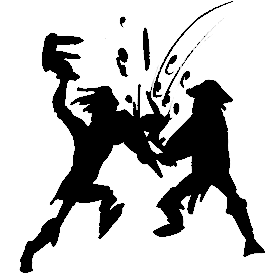
This article is part of the series where I share parts of my home-brew RPG - Rope - converted to Fudge (of course). I'm doing this to push myself to actually get the conversion done, so I can start running it again in earnest :).
As this is a port from my RPG I created before finding Fudge, and has not been tested a lot. I would love to get some feedback on this!
Fudge core rules introduce 3 ways to do combat: Story Elements, Simultaneous Combat and Alternating Combat. All these are quite generic and lack a bit of crunch and tactical elements that many other RPG systems provide. These rules resemble Alternating combat the most, and aim to provide the option for GMs who prefer a bit more detail in combat, with special moves and potentially multiple actions etc.
Item Crafting - Creating magical items in Fudge
Introduction
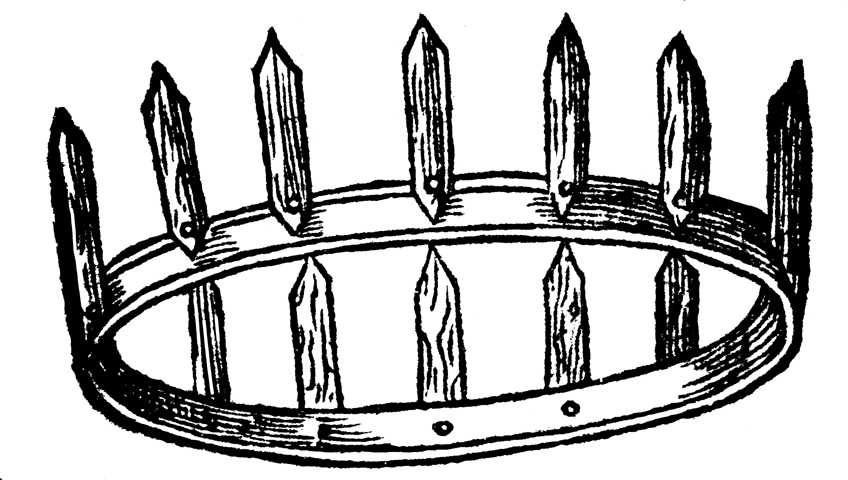
This article is part of the series where I share parts of my home-brew RPG - Rope - converted to Fudge (of course). I'm doing this to push myself to actually get the conversion done, so I can start running it again in earnest :).
As this is a port from my RPG I created before finding Fudge, and has not been tested a lot. I would love to get some feedback on this!
This system uses the Fudge Tasks and Spell Crafting from my previous posts. I recommend reading them first to understand the actual Item Crafting mechanic.
More options to Fudge on the Fly
Introduction
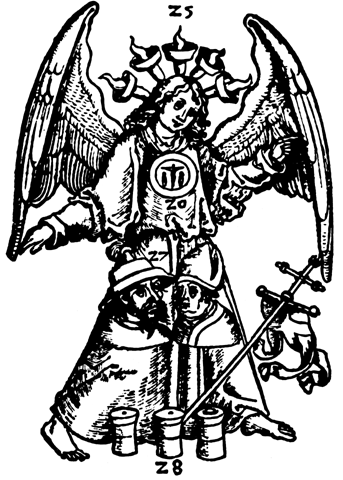
This is a short one, it's basically a small adjustment to Fudge on the Fly Option #2. It's all based on Fudge on the Fly by Rob Donoghue and I will assume that you are familiar with it.
I also use Option #1: Stats, and will extend Option 3 to them too.
Skill Training for Fudge
Introduction
This article is part of a new series where I share parts of my home-brew RPG - Rope - converted to Fudge (of course). I'm doing this to push myself to actually get the conversion done, so I can start running it again in earnest :).
As this is a port from my RPG I created before finding Fudge, and has not been tested a lot. I would love to get some feedback on this!
Often Characters find themselves having down time, either being between sessions or else are waiting on their journey to come to an end, etc. When there is nothing else to do characters can spend this time in training. Characters might also want to learn new skills and will go out of their way to seek out masters of certain rare skills and petition the masters to teach them.
All of that is covered in this article.
Fudge Shape-shifting
Introduction

These rules build on Fudge Tasks and A new damage system for Fudge I assume that the reader has read these article first.
This article is part of a new series where I share parts of my home-brew RPG - Rope - converted to Fudge (of course). I'm doing this to push myself to actually get the conversion done, so I can start running it again in earnest :).
As this is a port from my RPG I created before finding Fudge, and has not been tested a lot. I would love to get some feedback on this!
These shape-shifting rules apply to both voluntary and involuntary shape-shifting. The only difference is the trigger. In case of involuntary (like that of a Werewolf at full moon) the Character can try to resist the shape-shift but if they fail then these shape-changing rules apply.
Sisu - A new Fudge Attribute
Introduction
This is the fourth and final article I had planned for the Fudge Compendium. I actually wrote it to be a Fudge conversion of the Nature attribute in the Mouse Guard RPG. Here I present it as a generic system that can be used as a replacement of using a fudge point to take a +4 on dice for an unopposed roll.
Sisu is a Finnish concept described as stoic determination, tenacity of purpose, grit, bravery, resilience,[1][2] and hardiness[3][4] and is held by Finns themselves to express their national character. It is generally considered not to have a literal equivalent in English.
—“Sisu - Wikipedia, the free encyclopedia.” May. 1st 2020 http://en.wikipedia.org/wiki/Sisu
Sisu is a bit different from the other regular attributes. It measures how well the character can overcome obstacles and persevere in the face of hardship. It also measures how well the character can handle mental strain and recovery of said strain. The less Sisu he has the more meek he becomes and will be more likely to crumble beneath the strain that is life.
The Moon Spear - A Fudge Fantasy adventure
Introduction
This is my third Fudge Compendium article. This adventure is based on a dream I had quite a while ago. When I woke up I promptly made enough notes to write his adventure.
In the dream I was trying to find a spear called the Moon Spear. It was some sort of “trust in god type of thing” and one of the obstacles was to select the correct spear among multiple ones. I think I was inspired by some movies. If the spear was picked correctly some sort of hidden place would open up. The hidden place contained a cloth bundle containing several items. To make things harder, only a child could pick the correct spear in moonlight. Once the correct choice was made, some prayer resulted in the spear appearing. With the spear comes the shadow guard, an army of fierce spirit warriors, only visible in the moonlight. This is also clearly inspired by books and movies.
Meanwhile some bad dude had come before, but had failed to identify the correct spear, and left with what he thought was the moon spear. This is when I woke up. In order to create functioning adventure, I had to add things not in the dream. Remember it was a dream, so you should feel free to make some changes for it to fit your world.
I have also on purpose not included any maps or charts but instead verbal descriptions of places in order to make it easier for you to insert this into your game world.
Spell Crafting - A new Spell Casting mechanic for Fudge
Foreword
This is the second article that was supposed to be published in the Fudge Compendium. This system uses the Fudge Tasks from my previous post. I recommend reading that first to understand the actual Spell Crafting mechanic.
Yet another Magic system for Fudge? Yes, indeed. This is an open system like the Example Magic system of the Fudge SRD however it is a bit more formalized and predictable, and allows the players to also design spells and not rely only on the GM. This system also introduces 3 sources of magic, to give a bit of flavor.
Introduction
Magic in Spell Crafting falls into 3 realms: Divine Magic, Spiritual Magic and Sorcery. Divine Magic is practiced by Priests, Spiritual Magic is practiced by Animists, and Sorcery is practiced by Wizards. Unlike many other systems, Spell Crafting does not use any kind of spell lists nor even ready-made spells, instead it is up to the player (and the GM) to invent the spells. It is intended that the player will only need to know what they wish the spell to do. It is the GM who provides the mechanics of the spell i.e. how many points it will cost, etc. The player is free to provide flavor i.e. what it looks like when the spell is cast.
Fudge Tasks
While this is not officially one of the articles that was sent for the Fudge Compendium it is the core rules of one of the mechanics for my next post. Meanwhile enjoy this generic system for dealing with lengthy actions.
Introduction - Anatomy of a Task
A task is a skill resolution that takes more than one turn. Some examples are creating artwork, casting a spell, research, picking locks and more. The GM assigns a Task Value and a Task Turn along with a Task Difficulty to the task, and the character will try to gain enough Task Points to complete the task. Every Task Turn the character can gain more Task Points.
A new damage system for Fudge
This is my first article that was meant for the Fudge Compendium. Hope you like it!
This system for tracking damage is based on the damage system used in The Storytellin System, by White Wolf, Inc. It has been modified to work with Fudge and to give more flavour to Fudge Games.
Fudge Social Combat
by Douglas Weber. Published originally to Fudge Factor.
Why let the sword swingers and gunmen get all the screen time? With the Social Combat rules, you can Bluff, Charm, Intimidate, Impress, and Persuade your way through the world with all the detail and suspense of physical combat.
Experience-Free Skill Advancement
by Edward Beingessner. Published originally to Fudge Factor.
In a long running campaign, character improvement is essential, but as Steffan O'Sullivan points out in his "Recent Thoughts on Fudge", experience points do not work very well in Fudge. Advancement is too granular, either too quick or too slow. In fact experience points in any gaming system seem misdirected. With most experience systems, there is no relation between what the character does during the game and how he advances. There is a relation with how fast a character advances, but not what skills he advances in. For example, in the AD&D experience system a thief could gain all his experience back-stabbing monsters. Then when he gets his next level, he can suddenly climb walls better. It does not seem to follow. The same problem arises in the GURPS system. You get points to improve your character, but can use them to buy skills never used. For example, a character who was awarded character points for slaying a dragon could use them to buy a skill in picking locks.
Fudge Abstract Funds
by Duke York. Published originally to Fudge Factor.
Introduction
From its earliest beginnings, roleplaying has been about acquisition. Whether it's a simple lust for gold or a more altruistic desire to fund an escalating campaign against ever more pernicious evils, most great heroes are peddlers at heart, searching their loot for whatever gives the most plusses and trading the rest for gain.
Fudge on the Fly
by Rob Donoghue. Published originally to Fudge Factor. (I didn't manage to hear back from Mr. Donoghue, but reproducing this here for convenience since I have posts that expand on Fudge on the Fly.
Fudge on the Fly is a method of character generation that allows games to begin immediately, with only a few moments required for character generation. It does this by allowing players to select their character's skills during play, when the situation arises which calls for them. This has a number of benefits in addition to its speed - most notably it spares players the annoyance of failing to purchase the "right" skills. Every skill purchased will be one that proves itself useful during play. The revelation of character skills over the course of play also allows for the same sort of character discovery that is common in books and film.
A Non-Linear Wounding System
By Helge Lund Kolstad. Published originally to Fudge Factor.
Most RPG damage systems have a linear way of regarding wounds, i.e. hit points, a wound track, or a similar mechanism. The idea is that if you sustain enough small wounds, you will eventually die. This is fine for most games, but is nevertheless somewhat unrealistic. I present here an optional damage system, inspired by Fantasy Flight Games' Synergy game system.
The system is based on the assumption that you don't die if you sustain several non-mortal wounds. You might be hindered, feel bad and look unwell, but you won't die from it unless your condition somehow worsens. Likewise, it's fully possible to die from a single wound, no matter how tough you are.
Simultaneous Combat
by Jonathan Benn. Published originally to Fudge Factor.
What is Simultaneous Combat?
Simultaneous Combat is an alternative to the combat system found in the original Fudge rules. It seeks to solve what I perceive as problems with that system.


 Source on gitlab
Source on gitlab